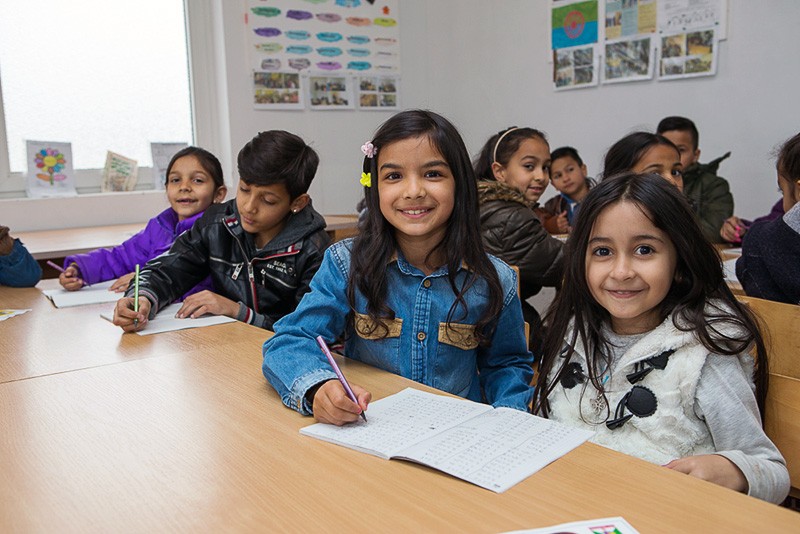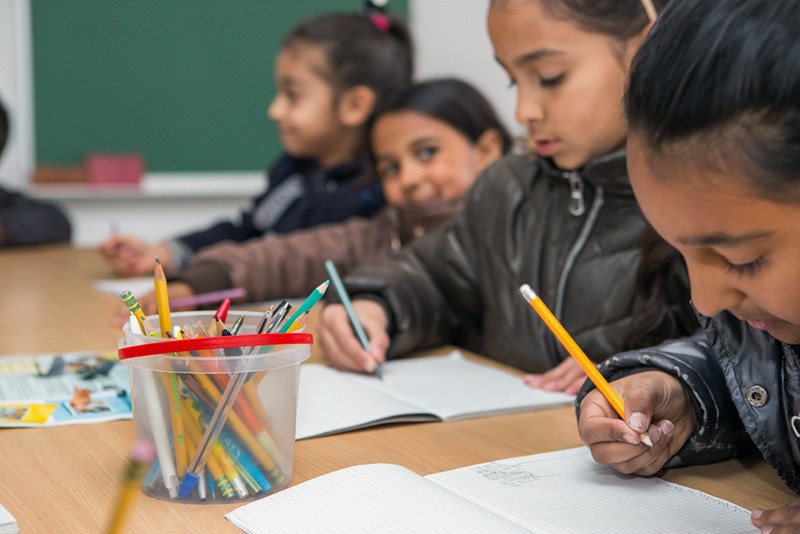News / Success Stories
Support to Roma education: The Strength is in Numbers (and Letters)
-
Vladičin Han, 24 June 2018
Sadly, this experience is an exception rather than a rule for the Roma children of Serbia. In reality, only 64% complete primary education and just 22% attend secondary school. This is partially due to the discrimination this population encounters in almost all aspects of their lives.
“Roma children, even when they go to school, are routinely regarded as uninterested, unmotivated, and less capable than their peers, which proves detrimental to the quality of education they receive,” Dejan Jakupović from the Association of Roma Intellectuals (ARI), notes.
Authorities have recognised these issues and adopted legislation to address them, the most recent being the Strategy for Social Inclusion of Roma in the Republic of Serbia 2016-2025 adopted in March 2016.
The Roma minority should be well on their way to mirror the national statistic on education levels. In reality, not much has changed. The deeply rooted, culturally habituated, notions about the Roma that exist in Serbia remain the unyielding obstacle to change. Dispelling them is difficult in the face of poverty and unemployment - all the common struggles of underdeveloped municipalities.
Vladičin Han, one of the least developed municipalities in the country, is home to approximately 2,500 Roma, or close to 10% of the overall population of the municipality. Here, the meagre literacy rates among the Roma minority are further aggravated by a high percentage of seasonal and migrant workers, whose children are not enrolled in schools and never learn Serbian language making it hard to access any services - especially education.
With financial support of the European Union and the Government of Switzerland over the past five years, through EU PROGRES and European PROGRES programmes, which preceded the Swiss PRO programme, the ARI received close to 36,000 Euros to expand from strengthening access to education to direct advocacy work with the parents on the importance of education and school enrolment. Most recently they have engaged a pair of teachers to provide local Roma children with additional classes in order to ease their school experience.
“Since we started this project the number of children enrolled in school increased tenfold,” Jakupović says. “This is a great example of why it’s so important to invest in the local organisations - they understand the circumstances and effectively work around them together with communities. “
The results speak for themselves - in statistics, in better parental understanding of the importance of education and, most prominently, in the excitement of children attending school.
“In the past couple of years the children started writing over the holidays to ask me when the classes will recommence,” says teacher Tanja Cvetković.
“Roma population is starting to see education as an investment, not just in the individual child and its future, but the future of the community as a whole. Where the rest of the world sees increase in numbers, we see hope of a much better future for our community,“ Jakupović concludes.
The Swiss PRO Programme builds on the development momentum created by its predecessors, and in next four years it will continue supporting social inclusion of excluded groups and improvement of their position in the local communities.







